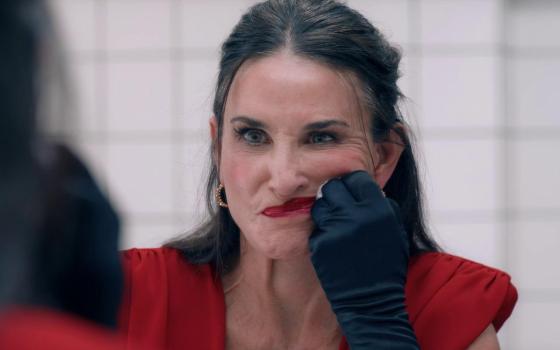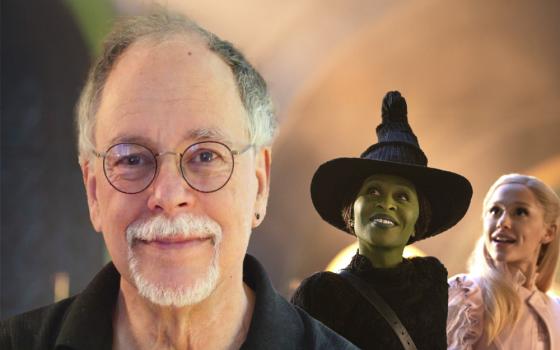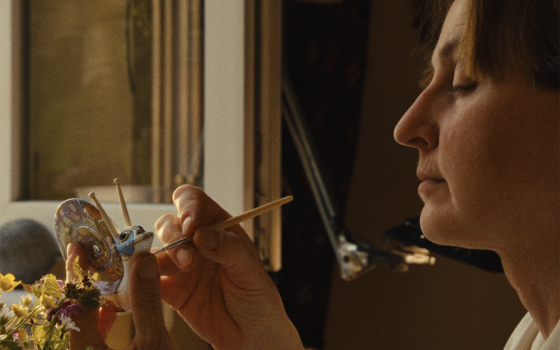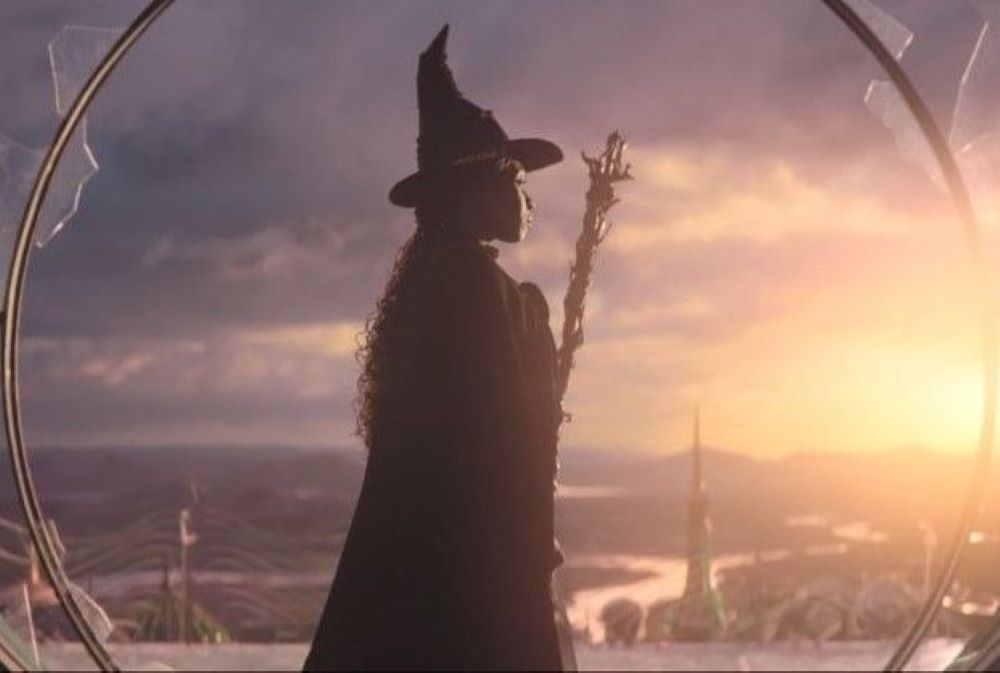
Cynthia Arivo portrays Elphaba in "Wicked (Part 1)." Rather than seeking relief from her own oppression by siding with power and supremacy, Elphaba lets her pain drive her towards those who also suffer. (Universal Pictures)
Editor's note: This review contains spoilers.
In 2015, I was enchanted by the storytelling and tear-jerking performances of the stage production of "Wicked." Last week, the film adaptation left me equally speechless. "Wicked (Part 1)" provides an immersive sensory experience: vibrant colors, larger-than-life choreography, elaborate set designs, precise music production, the intimacy of subtle facial expressions and rumbling movie theater seats enable the viewer to be enveloped in the magic of the land of Oz.
Upon this Ozian landscape is a story of just how much the marginalized have to teach us, one that hails solidarity as our greatest hope for overcoming oppressive powers. Right from the start, "Wicked" subverts our assumptions about protagonists and villains: As the film opens in Munchkinland, with Ozians rejoicing that the Wicked Witch is dead (to the opening tune "No One Mourns the Wicked"), their celebratory singing, dancing and effigy-burning is interrupted when a child asks Glinda, "But how do people become wicked?"
As a high school theology teacher, I facilitate conversation around this question a lot. One of our vocations class texts, Tattoos on the Heart, addresses it well. In his book, Jesuit Fr. Greg Boyle humanizes gang members, often demonized as the most "wicked" in our society, by detailing their stories of the childhood trauma that spurred their entry into gangs. Though we often want things to be black or white (or, green or pink in the case of "Wicked"), truth is often found in the gray. People cannot be reduced to merely "good" or "wicked" — and this is the movie's central premise.
Glinda answers the child's question by recounting Elphaba's deeply troubled childhood as a result of being born with green skin. We learn that Elphaba's anger at injustice manifests in powerful, uncontrollable outbursts of magic — which only cause others to fear and alienate her more. As Glinda continues to tell the story of how she and Elphaba met at Shiz University, moviegoers follow her back in time and see a young Elphaba being patronized and bullied by students who are repulsed by her green skin. Casting Cynthia Arivo, a Black woman of Nigerian descent, as Elphaba, a woman of (green) color, powerfully mirrors the impacts of racism we see in our world today. Elphaba's treatment invites viewers to consider how far our own inclusivity extends. Who is given a seat at our tables? Who is not?
People cannot be reduced to merely "good" or "wicked" — and this is the movie's central premise.
Glinda (then known as Galinda, portrayed by Ariana Grande) provides an excellent foil to Elphaba: a platinum blonde, pampered white girl, around whom the whole world revolves. Initially, Galinda and Elphaba clash, and their "Loathing" (another driving musical number) deepens as they are assigned to be roommates. The tension comes to a head when Elphaba mistakes Galinda's prank for a peace offering, and is mocked ruthlessly at a school dance. But in that moment, with everyone pointing and laughing, Elphaba chooses not to let the others have power over her. She begins her own strange and silent dance, all alone. Panged with genuine remorse, Galinda steps onto the dance floor and, as the two begin to dance together, tears stream down Elphaba's face.
Meanwhile, animals — who, in Oz, can speak and teach — are being silenced, rounded up and even disappearing (eerily reminiscent of injustices like the Holocaust, the Nakba, Japanese internment camps and mass deportations). When the last animal professor at Shiz is arrested and replaced by a human teacher who believes in caging animals "for their own good," Elphaba is compelled to speak up and take action, even as her classmates fall silent and unmoved.
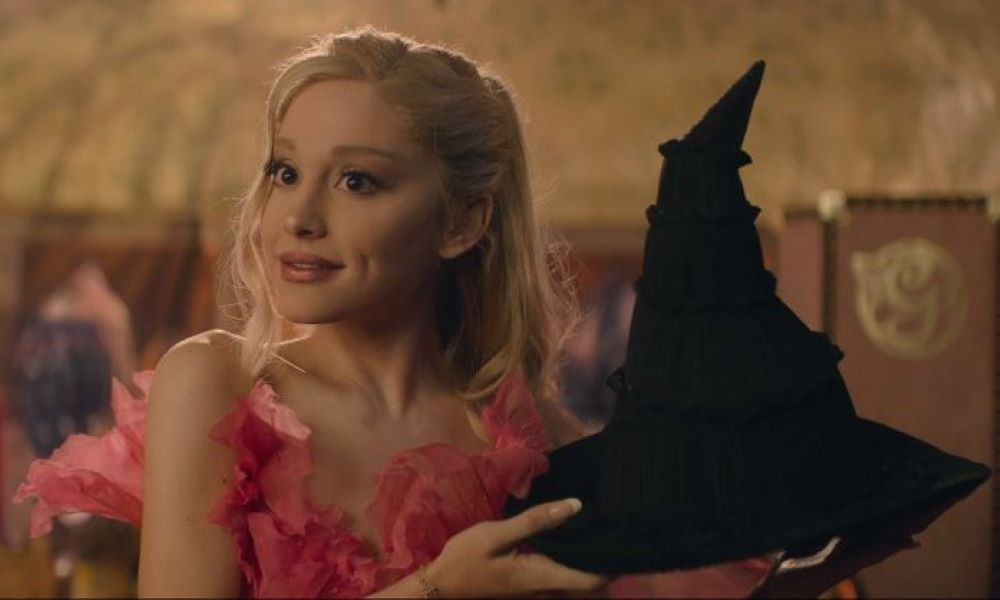
In "Wicked (Part 1)," Glinda (Ariana Grande) provides an excellent foil to Elphaba (Cynthia Arivo): a platinum blonde, pampered white girl, around whom the whole world revolves. (Universal Pictures)
Elphaba's care for the oppressed reaches its peak when she is invited to prove her magical training to the Wonderful Wizard of Oz. But when she learns that the Wizard himself is responsible for grievous injustice, she stands for what is right, regardless of the cost. Galinda pleads with her friend to repair her reputation, still struggling with her own attachment to privilege, comfort and esteem in the eyes of the powerful. Part 1 ends with Erivo's goosebump-inducing rendition of "Defying Gravity," and we see Elphaba harnessing her power with more clarity than ever before.
Witnessing Elphaba's character development raised questions about my own vocation and discernment. How is God calling me to stand in solidarity, not just when it's comfortable or puts me in a good light in others' eyes, but even when it costs me?
In an interview for NCR, I asked "Wicked" screenplay writer Winnie Holzman what creative wisdom she gained from working on "Wicked" and what Elphaba teaches her about vocation. "Among many other lessons, it’s taught me the importance of not giving up … keeping the faith," Holzman said, "Speak from your heart. Speak your truth. We all experience fear and feelings of insecurity; it's part of being human, and it's definitely part of being an artist. But don't let the fear silence you."
Her words resonate in our present cultural moment. How can we overcome fear and speak truth to power through art, prayer and activism as violence ravages people in places like Palestine, Congo, Sudan, Ukraine and Haiti? As immunocompromised people struggle to be heard and feel safe in a world that behaves as though we are "post-COVID"? As many of our politicians across both major political parties dehumanize transgender people, undocumented immigrants at the U.S./Mexico border, the unhoused and so many others? "Wicked" leaves us with big questions to ponder about our callings.
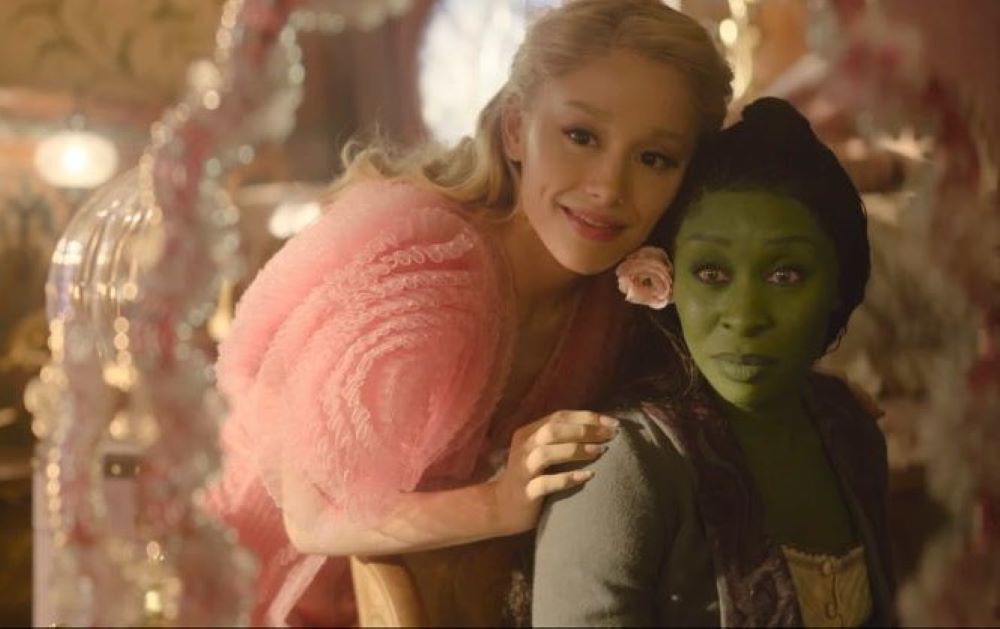
In "Wicked (Part 1)," Glinda (Ariana Grande) and Elphaba (Cynthia Arivo) meet as students at Shiz University, where they are roommates. After a prank leads students to mock her, Elphaba decides she will no longer let others control her. (Universal Pictures)
The film also invites us to consider the ways that wealthy and powerful people manipulate the masses and uphold corrupt systems that rely on the exploitation or exclusion of some to benefit others. Rather than seeking alleviation from her own oppression by siding with power and supremacy, Elphaba lets her pain drive her, in solidarity and compassion, towards those who also suffer. This exhibits Catholics' understanding of being one in the body of Christ as well as Thich Nhat Hanh's Buddhist concept of "interbeing," which posits that all things exist in a state of being interwoven and mutually dependent. Elphaba sees that her own liberation is bound up with the liberation of the animals — not in appeasing the powerful at their expense.
Advertisement
While more will unfold in the second installment, "Wicked (Part 1)" skillfully tells a story that is full on its own, while still leaving the audience wanting more. Holzman told NCR that the decision to divide the narrative into two parts was one the team spent months deliberating. "We didn’t want any of Stephen Schwartz's songs to be cut. In fact, Stephen was planning two new songs for the second half of the story, and there were several key moments where we wanted to be able to take more time and delve a little more deeply than we do on stage."
The answer, director Jon Chu decided, was to make two movies. "[Chu] expressed confidence in this approach … So we put our faith in him and I’m very glad we did," she said.
Knowing we have an expanded score and story depth to look forward to makes the anticipation of "Wicked (Part 2)" even more exciting. It is scheduled for release on Nov. 21, 2025.





